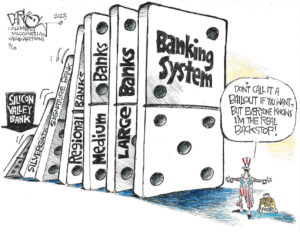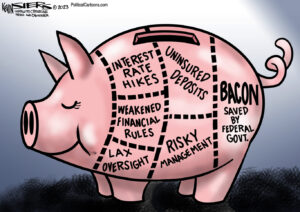Clooney Zeroes In on ‘The $700 Billion Man’
Does the name Neel Kashkari ring a bell? Think way back to the year 2008, when the word bailout was just entering the vernacular in relation to Wall Street, not prison, and when Henry Paulson was still in charge of the Treasury Department.
Does the name Neel Kashkari ring a bell? Think way back to the year 2008, when the word bailout was just entering the vernacular in relation to Wall Street, not prison, and when Henry Paulson was still in charge of the Treasury Department.
Come to think of it, that’s right around when the term TARP was taking on a new meaning outside of the camping context. Kashkari was one of the key architects of the now-infamous bailout program, but since then, he’s had a change of scenery. And this week, the news broke that George Clooney will produce, and maybe direct, a movie based on Kashkari and the banking meltdown. Here’s more from Movieline. –KA
Your support matters…Movieline:
Based on the Washington Post article “The $700 Billion Man,” the untitled film (though that seems like a great title) will tell the story of “TARP mastermind Neel Kashkari, a top official under then-Treasury Secretary Henry Paulson,” who ended up leaving Washington DC to live in isolation in Northern California.
Independent journalism is under threat and overshadowed by heavily funded mainstream media.
You can help level the playing field. Become a member.
Your tax-deductible contribution keeps us digging beneath the headlines to give you thought-provoking, investigative reporting and analysis that unearths what's really happening- without compromise.
Give today to support our courageous, independent journalists.




You need to be a supporter to comment.
There are currently no responses to this article.
Be the first to respond.